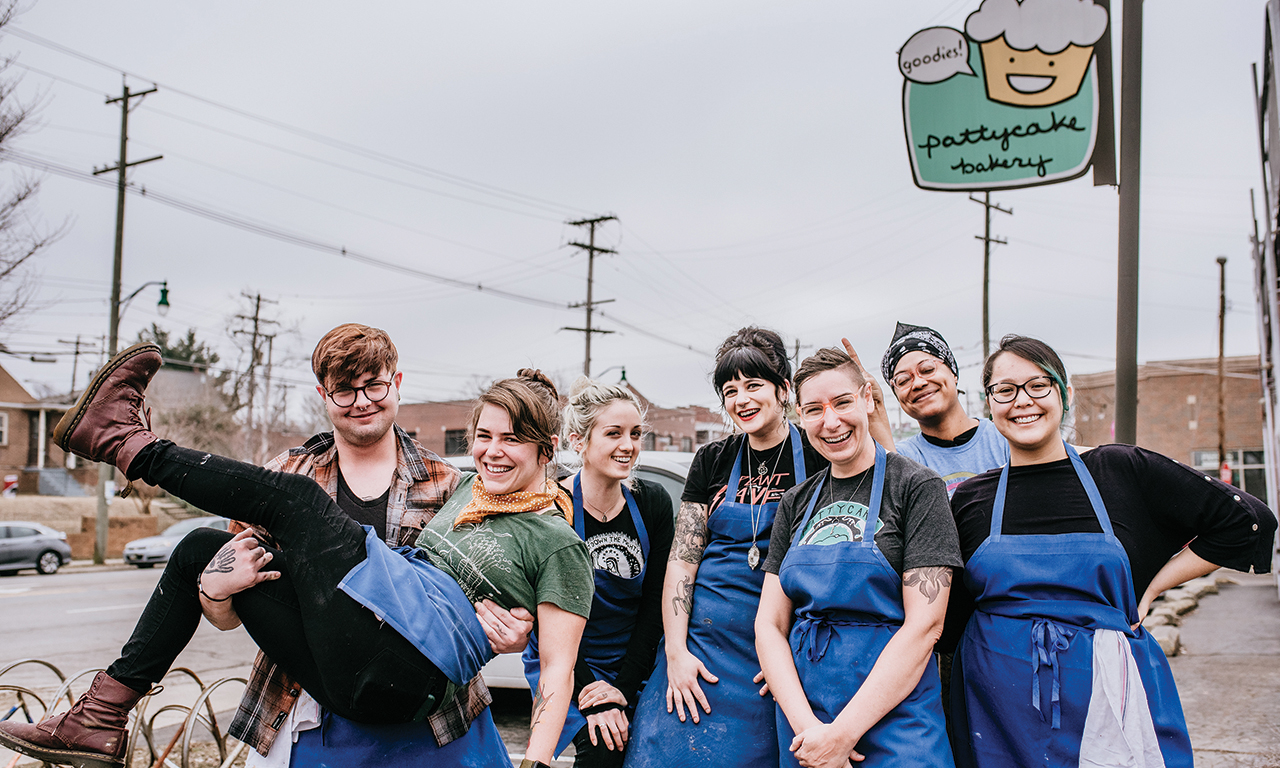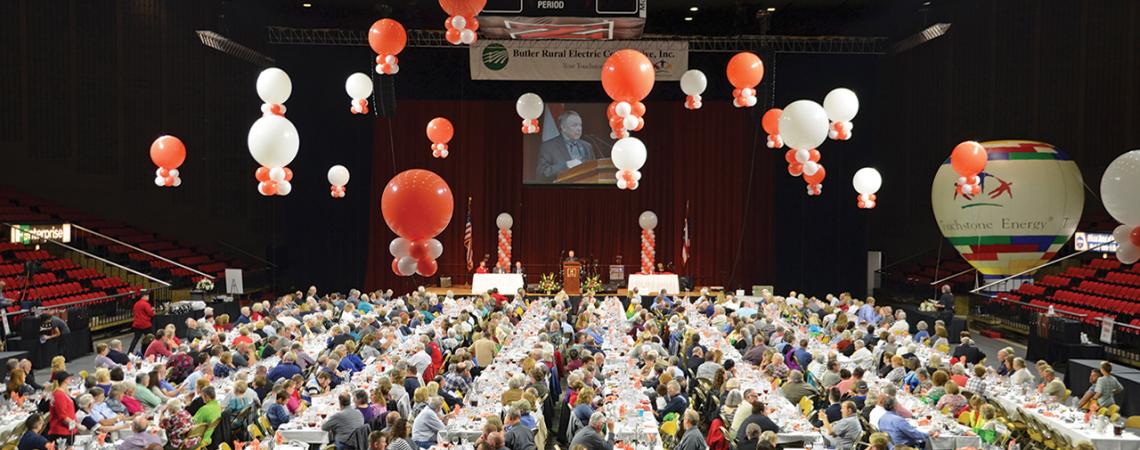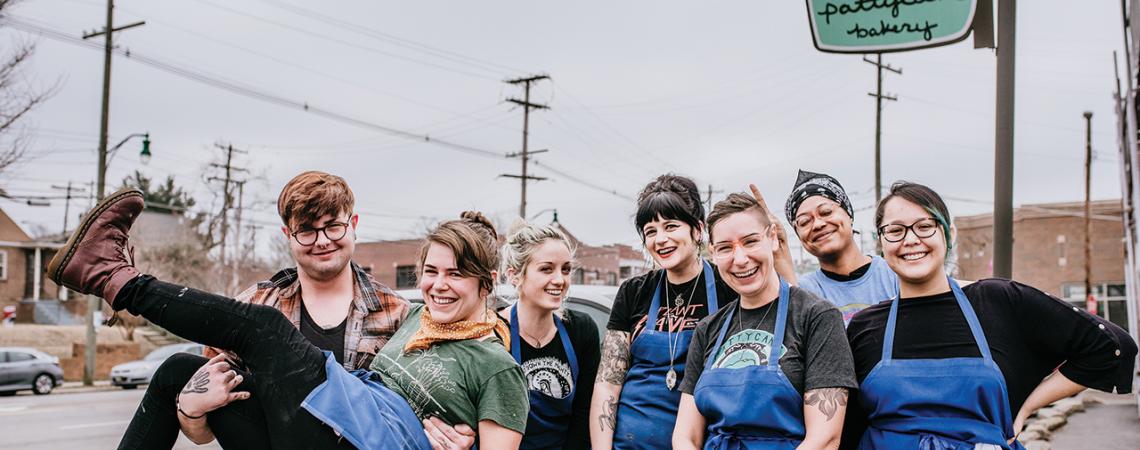Butler Rural Electric Cooperative fulfills its democratic principles with its annual meeting.
The moment they open the door, Pattycake Bakery patrons are greeted with the smell of freshly baked Marry Me Blueberry muffins and Thrilla Vanilla cupcakes. Located in Columbus’ Clintonville neighborhood, the popular bakery strives to be conscientious in everything it does, like using all-natural ingredients, delivering orders by bicycle, and, in 2013, becoming a worker-owned cooperative.
A cooperative is a business that is owned by and operated for the benefit of those who use it. With a worker-owned cooperative, worker-owners have a say in business decisions and reap larger rewards for their efforts than they would as employees. For Pattycake founder Jennie Scheinbach, converting her business into a co-op was an ethical decision.
“A co-op creates a more democratic work environment,” Scheinbach says. “When you remove the manager-employee power dynamic from the equation, you operate as equals, and the result is more genuine, more authentic relationships. The business feels more like a family now.”
There are some 65,000 co-ops in the United States, according to the National Cooperative Business Association. Pattycake is an example of a worker cooperative, one of the fastest-growing segments of businesses that use the cooperative model. The largest cooperatives are producer co-ops, a segment that includes such well-known brands as Ocean Spray, Ace Hardware, and Land O’Lakes — where, for example, dairy farmers collaborate to more efficiently process, market, and distribute their goods under a common label.
The most well-known type of cooperative is a consumer co-op, which often takes the form of retail outlets, such as local grocery stores, that are owned and operated by the consumers that purchase their goods. The nation’s nearly 900 private, independently owned, not-for-profit electric cooperatives are another type of consumer co-op, owned by and serving an estimated 42 million people in 48 states. The 24 Ohio-based electric distribution cooperatives serve more than 380,000 homes and businesses — around 1 million people — in 77 of the state’s 88 counties, providing electric service to areas that for-profit utilities are generally reluctant to serve because of a lower profit potential.
Instead of being profit-driven, though, cooperatives run on shared values. Every member has a right to participate in the governance process by voting for the board members who make decisions in the best interests of the co-op. Since they’re owned by and governed by their members, cooperatives are hyperfocused on service to those consumer-members — and in survey after survey, co-op customers report higher satisfaction rates than customers of similar for-profit companies.
Staying true to their values also allows cooperatives to forge their own paths and travel where corporate businesses cannot tread. In 2015, outdoor retail co-op Recreational Equipment, Inc. — better known as REI — made headlines for being closed on Black Friday, while its competitors kicked off holiday sales as early as Thanksgiving afternoon. Member-owners decided it was more important for REI employees to enjoy the holiday with their families, so they bucked the long-standing shopping tradition. How did consumers respond to such a radical move? By joining REI. The co-op saw a 9.3% increase in membership.
Electric cooperatives, both owned and staffed by people who live in the communities they serve, work constantly for the betterment of those communities. Many create charitable foundations that their members contribute to, which then award grants to help those in need.
The cooperative structure offers other benefits, too. After paying its bills and setting aside funds for the future, the business distributes any remaining funds back to its members in the form of capital credits. Also, because co-op shares are not traded on Wall Street, they’re not under pressure to show ever-increasing quarterly earnings, which means they can focus on long-term objectives.
Co-ops help communities thrive
A new co-op is bringing fresh food and sustainable jobs to Dayton’s Salem Avenue Corridor, a community that needs both. When construction is finished next year, Gem City Market will be a modern, welcoming, 15,000-square-foot grocery store. Until then, the market is hosting regular farm stands, community conversations, and walking groups to encourage people to join and to promote healthy living.
Kenya Baker is outreach director of Co-op Dayton, the nonprofit that’s developing Gem City Market. Baker says the cooperative model will show people what they can do when they work together.
“The members are the catalyst that drives the engine. They’re going to be part of this beautiful structure that offers quality service — and know that they made it happen,” she says. “This will open up a world of possibilities about other ways they can affect their communities. I am excited to watch them do this for themselves.”











